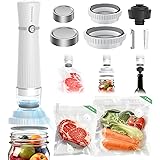A persistent cough can be an incredibly disruptive and uncomfortable experience, as was clearly heard in the accompanying video. When traditional medications are not readily available, such as during a camping trip or in an outdoor survival situation, individuals often search for alternative remedies. One intriguing suggestion that sometimes arises in these contexts is the use of soy sauce cough medicine for relief.
The idea of utilizing everyday pantry items for health concerns is not new, reflecting a long history of home remedies being passed down through generations. For those who find themselves grappling with a troublesome cough, especially away from pharmacies, exploring various options for relief becomes a priority. This article delves into the concept of using soy sauce for cough symptoms, examining its theoretical basis and practical considerations.
Understanding the Appeal of Unconventional Cough Remedies
Many individuals are naturally inclined to explore holistic or accessible solutions when faced with common ailments like a cough. The widespread availability of certain household ingredients often makes them a first resort, particularly when professional medical attention is not immediately accessible. This preference is particularly evident among outdoor enthusiasts or those interested in survival techniques, where resourcefulness is highly valued.
In settings like remote campsites or during extended outdoor excursions, access to conventional pharmaceutical options is often limited. Consequently, knowledge of simple, readily available home remedies becomes invaluable for managing minor health issues. The search for effective natural cough relief often leads to creative uses for common food items.
Exploring the Potential of Soy Sauce for Coughs
The suggestion that soy sauce cough medicine could offer relief typically centers on its unique composition. This fermented condiment contains a significant amount of salt, along with various amino acids and other compounds developed during its production. Historically, salt has been recognized for its therapeutic properties in managing respiratory discomfort, particularly in saline solutions.
Anecdotal reports and traditional practices sometimes suggest that the salty nature of soy sauce might contribute to its perceived effectiveness. When consumed in small quantities or used as a gargle, it is thought that the salt could help to soothe irritated tissues. Furthermore, the act of ingesting any liquid can be beneficial for keeping the throat moist and easing coughing spasms.
Investigating the Theories Behind Soy Sauce and Cough Relief
Several theories are often discussed regarding why soy sauce for cough symptoms might offer some benefit, though robust scientific evidence specifically for this application is limited. One primary hypothesis revolves around the osmotic effect of salt, which is a major component of soy sauce. A saline solution has been shown to help draw out excess fluid and reduce swelling in irritated tissues, which can be beneficial for a sore throat or congestion.
Another theory suggests that the fermentation process involved in making soy sauce could yield compounds with some anti-inflammatory or antioxidant properties. While these properties are recognized in fermented foods generally, their direct impact on cough suppression is not specifically documented for soy sauce. The soothing effect could also simply be attributed to the lubrication provided by any ingested fluid, helping to calm a dry, irritated throat.
Practical Application: Using Soy Sauce for Respiratory Discomfort
Should one choose to experiment with soy sauce cough medicine, it is generally advised that small amounts be consumed, perhaps a teaspoon mixed with a bit of warm water. Some individuals prefer to use a diluted soy sauce solution as a gargle, similar to how salt water is traditionally employed for throat irritation. The aim is to achieve a soothing effect without excessive ingestion of sodium.
However, it is critically important to consider the high sodium content of soy sauce, which could be problematic for individuals with certain health conditions, such as high blood pressure. Additionally, this approach should never replace conventional medical treatment for persistent or severe coughs. These home remedies are typically intended for mild, temporary discomfort and should be used with caution.
Beyond Soy Sauce: Other Natural Cough Relief Options for Outdoor Enthusiasts
While exploring unconventional options like soy sauce for cough is a testament to human ingenuity, many other natural remedies are widely accepted for their efficacy in alleviating cough symptoms. For individuals in outdoor or survival situations, a range of accessible alternatives exists that can provide comfort.
-
Honey: This natural sweetener has long been used to soothe sore throats and reduce coughing. Its thick consistency can coat the throat, providing immediate relief. A spoonful of honey, especially before sleep, can be surprisingly effective for easing nighttime coughs.
-
Ginger: Known for its anti-inflammatory properties, ginger can be brewed into a soothing tea. Slices of fresh ginger root steeped in hot water can help to calm respiratory passages and relieve irritation. It is a widely available spice that offers more than just culinary benefits.
-
Lemon and Warm Water: A simple mixture of lemon juice and warm water, perhaps with a touch of honey, can help to thin mucus and provide vitamin C. This classic combination is a staple in many home remedy arsenals, offering hydration and a gentle expectorant effect.
-
Hydration: Drinking plenty of fluids, such as water, herbal teas, and broths, is paramount for cough relief. Hydration helps to keep the throat moist and thins mucus, making it easier to expel. Maintaining fluid intake is often underestimated but profoundly important.
-
Steam Inhalation: Breathing in steam from a bowl of hot water can help to loosen congestion and soothe irritated airways. While perhaps challenging in some outdoor settings, creating a makeshift steam tent can provide significant relief for a congested cough.
-
Rest: Ultimately, allowing the body ample rest is one of the most effective ways to recover from a cough. Conserving energy enables the immune system to combat the underlying cause of the respiratory discomfort more efficiently. Prioritizing rest helps to accelerate the healing process.
When to Seek Professional Medical Advice for Persistent Coughs
It is important to understand that home remedies, including the exploration of soy sauce cough medicine, are generally intended for mild and temporary relief. Persistent or severe coughs could indicate a more serious underlying condition that requires professional medical attention. If a cough is accompanied by fever, difficulty breathing, chest pain, or lasts longer than a few days, a doctor should be consulted immediately.
Home remedies can serve as a supplementary measure to alleviate discomfort, but they are not a substitute for proper diagnosis and treatment by healthcare professionals. Always prioritize safety and well-being, especially when dealing with health concerns in remote or challenging environments. The information provided here is for general knowledge and should not be considered medical advice.











